contributors
Nil Nikandrov

Independent analyst and researcher
all articles
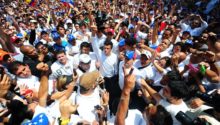

Two demonstrations and two well-attended marches that took place in Caracas on Sept. 1 reflected all the tension of the current environment in Venezuela. The supporters of the Bolivarian government and «socialism with a Venezuelan face» took to the streets, as did the opposition, led by the Democratic Unity Roundtable (MUD). The demonstrations were intended to show who «controls the street,» and whom the public favors. And as it turned out, more supporters of MUD were found in the rich neighborhoods of the capital, while the United Socialist Party of Venezuela (PSUV) was firmly entrenched in those districts where ordinary people live…
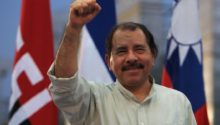

After three Americans from the US embassy were accused of espionage and tossed out of Nicaragua, a protest was lodged in Managua against this «unwarranted» decision, and the Nicaraguan government was warned that the relationship between the two countries would suffer inevitable damage in tourism, trade, and investment from the US. The State Department issued notice that Americans might face threats in Nicaragua. The war of propaganda waged against Daniel Ortega’s regime has become so ferocious that political commentators are drawing conclusions about Washington’s plans to «end the dictatorship» in Nicaragua once and for all…
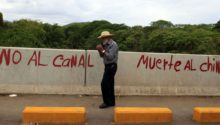

On June 14 a group of Americans were deported after the authorities deemed their actions to be sufficiently suspicious. Two of them worked for US Customs and Border Protection and tried to «inspect» the work of the Nicaraguan customs agency without permission from the Nicaraguan government. They had also taken steps to obtain information about shipments of military equipment from Russia, including plans to import T-72 tanks. The US embassy in Managua protested the expulsions and explained that their «inspectors» were interested in restricted-access sites simply as part of their mission to combat international terrorism…
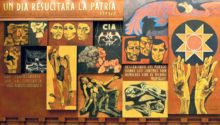

A mural hanging inside the Ecuadorian parliament building by the famous Ecuadorian painter Oswaldo Guayasamín, titled «Imagen de la Patria», includes an image of a grinning skull in a helmet emblazoned with the acronym «CIA». When the mural was first unveiled in August 1988, Guayasamín explained that this image epitomized all the foreign threats to his native country. And for almost three decades this «CIA skull» has gazed out at the deputies in parliament with a sinister grin…
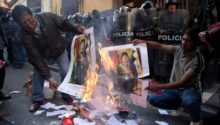

US intelligence agencies have ramped up their operations intended to remove Bolivian President Evo Morales from office
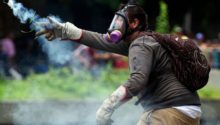

In his speeches Venezuelan President Nicolás Maduro constantly returns to the subject of the new Condor plan that the US is seeking to undertake in Latin America and the Caribbean. The codename «Condor« was first used to camouflage the widespread oppression orchestrated by military juntas in South America (mainly in Chile, Brazil, Argentina, Bolivia, Uruguay, and Paraguay) from 1970-1980…
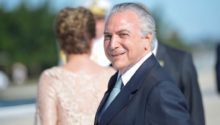

No doubt, US special services are behind the crisis in Brazil. Now they continue to control the events. Compromising evidence against the leadership of the Workers’ Party, the top officials of Petrobras, a state-owned oil company, and the inner circles of President Dilma Rousseff and former President Lula da Silva has been leaked as part of an operation to undermine the «hostile regime»…
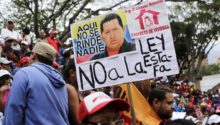

In order to understand the current plight of Venezuela, one has to go back to the parliamentary elections of Dec. 6, 2015. For the first time, the base of President Nicolás Maduro’s support, the United Socialist Party of Venezuela (PSUV), took a beating…
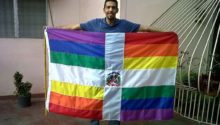

In 2015, the US Supreme Court issued a landmark decision, legalising same-sex marriage throughout the country. President Obama wrote on Twitter: «Today is a big step in our march toward equality. Gay and lesbian couples now have the right to marry, just like anyone else. #LoveWins»…
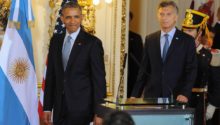

The defeat of the Kirchnerists in the recent presidential elections in Argentina was largely due to the publicity and propaganda advantages held by Mauricio Macri, the leader of the Republican Proposal party. Those advantages were provided by the Clarín media group that dominates public communications in Argentina. Macri was called the «US candidate», and this has proven true since he took office. Barack Obama came to Buenos Aires on an official visit and was full of optimism when he spoke of the upcoming golden era in the US-Argentine relations…



